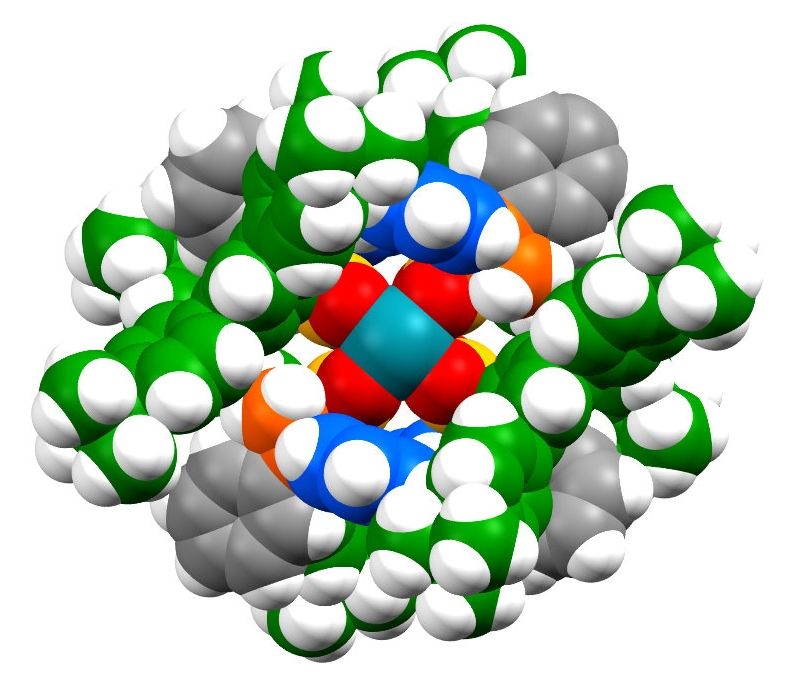Page 10920
May 12, 2016
Russell Smith: What’s behind our sudden fascination with immortality?
Posted by Karen Hurst in categories: biotech/medical, education, life extension, mobile phones, nanotechnology, particle physics, Ray Kurzweil, time travel
A documentary film just had its premiere at the Hot Docs festival in Toronto. How To Build A Time Machine, the work of filmmaker Jay Cheel, is a strange and incoherent little document of two middle-aged men with loosely related obsessions: One of them wants to build a perfect recreation of a movie prop – the machine from the 1960 movie The Time Machine, based on the H.G. Wells novel – and the other is a theoretical physicist who thinks he may have effected a kind of time travel in a lab, on a microscopic scale, using lasers that push particles around. The weak connection between the two men is that they both regret a death in their past – a best friend, a father – and are preoccupied with what they might have done to prevent the death; they both wonder if time travel to the past might have been a remedy for death itself. (Compared to the protagonist of Zero K who seeks immortality as a way of avoiding the loss of a loved one.) The 80s synthpop song Forever Young by Alphaville booms symbolically at one point.
Why this sudden ascendancy of yearning for immortality now? Is it simply because immortality of a medical sort might be imminent, a result of technological advances, such as nanobots, that will fight disease in our bloodstream? Or is it because, as Ray Kurzweil implies, digital technology is now so advanced that we have already left our bodies behind? We already live outside them, and our digital selves will outlive them. (“I mean,” says Kurzweil, “this little Android phone I’m carrying on my belt is not yet inside my physical body, but that’s an arbitrary distinction.”)
The frequently quoted axiom of Arthur C. Clarke – “Any sufficiently advanced technology is indistinguishable from magic” – is pertinent to this current fascination with life without end. We are now perceiving technology as not just magic but as god-like, as life-giving, as representing an entirely new plane of being.
Continue reading “Russell Smith: What’s behind our sudden fascination with immortality?” »
It’s clear that bots are having a moment. Even before Facebook’s Bots for Messenger announcement at their developer conference, there had already been a flood of investments, controversies, and critiques. So I wanted to learn how to make my own bot — and put it to work!
On the one hand, chat bots are nothing new. They have been around since the 1960s and the days of ELIZA. But suddenly the tools to create meaningful, personalised conversations are easy enough to deploy at scale. We have APIs, the ability to continuously monitor and parse messages for relevance and enormous messaging platforms for distribution — which is where people are spending the majority of time these days.
To get a sense for the bot world I decided to try my hand at making one.
May 12, 2016
Hyperloop One conducts first test of propulsion mechanism in Nevada desert
Posted by Karen Hurst in categories: Elon Musk, transportation

https://youtube.com/watch?v=1e-Po9C8Kj8
They’re just showing off again — I cannot wait until this thing is fully operational and expanded.
LOS ANGELES, May 11 (UPI) — Hyperloop technology enjoyed its first public test on Wednesday.
Continue reading “Hyperloop One conducts first test of propulsion mechanism in Nevada desert” »
May 12, 2016
Quantum research that could enhance self-driving vehicles now a $6M commercial venture
Posted by Karen Hurst in categories: computing, quantum physics, robotics/AI, transportation
I am so happy to see others seeing the value because Quantum is changing everything; not just computing, raw material enrichment, medical technology and treatments, etc. Once more and more folks start seeing the various capabilities around Quantum and just how wide that range is; we will begin to see an explosion of demand for Quantum. We’re still in that mode of discovery, and wait and see state by some. However, the Quantum Revolution will exceed even the industrial revolution with the span of change that it brings across so many areas & industries.
Quantum physics research that could enhance self-driving vehicles and spearheaded by a Dalhousie University team is now a $6-million commercial venture that counts U.S. aerospace giant Lockheed Martin among its partners.
What started as a theoretical research project backed by Lockheed Martin hit paydirt when physics professor Jordan Kyriakidis realized quantum software could be used to perfect the design and operation of self-driving cars and new aircraft.
May 11, 2016
Stephen Hawking says Black Holes could be portals to another Universe
Posted by Andreas Matt in categories: cosmology, law enforcement
According to statements from renowned astrophysicist Stephen Hawking, Black Holes are not the cosmic prisons we thought they were, and could actually be portals to another universe.

During a lecture at Harvard’s Sanders Theater, renowned physicist Stephen Hawking helped about Black Holes during an event which marked the inauguration of Harvard’s Black Hole Initiative wich aims to join numerous scientists and focus scientifically on Black Hole Research.
Continue reading “Stephen Hawking says Black Holes could be portals to another Universe” »
May 11, 2016
Chemists find ‘huge shortcut’ for organic synthesis using C-H bonds
Posted by Karen Hurst in category: chemistry
Chemists have taken another major step in the quest to use carbon-hydrogen bonds to create new molecules, a strategy that aims to revolutionize the field of organic synthesis.
The journal Nature is publishing the work by chemists at Emory University. They demonstrated the ability to selectively functionalize the unreactive carbon-hydrogen (C-H) bonds of an alkane without using a directing group, while also maintaining virtually full control of site selectivity and the three-dimensional shape of the molecules produced.
“The catalyst control we have found goes beyond what has been achieved before,” says Huw Davies, an Emory professor of organic chemistry whose lab led the research. “We’ve designed a catalyst that provides a huge shortcut for how chemists can turn a simple, abundant molecule into a much more complex, value-added molecule. We hope this gives people a fundamentally new view of what can be achieved through C-H functionalization.”
May 11, 2016
Frequency of extreme heat waves on the increase in Africa: Could occur annually
Posted by Karen Hurst in category: biotech/medical
Not good; hope we can by 2045 have new methods to create weather/ drought resistant vegetation, and matured the improved options around converting sea water to fresh water so no one suffers from harsh weather including droughts.
Longer, hotter, more regular heat waves could have a damaging effect on life expectancy and crop production in Africa warn climate scientists in a study published in the journal Environmental Research Letters. Examining temperature data from 1979 to 2015, the researchers caution that heat waves classified as unusual today could become a normal occurrence within 20 years. This scenario could be triggered by an increase in average global temperature of 2 degrees.
Risk all year round
Continue reading “Frequency of extreme heat waves on the increase in Africa: Could occur annually” »
May 11, 2016
How toy street lamps are shedding new light on quantum computing
Posted by Karen Hurst in categories: computing, quantum physics, transportation
“ALL ABOARD” the QC train is leaving the station.
If you’ve ever had a train set, you might remember the tiny street lamps that are often part of the model landscape. Today, the bulbs from those toy lamps are helping to shed light on quantum computing.
In fact, there’s been a spate of developments lately in quantum computing, and not just IBM’s announcement of its upcoming cloud service. Here are three recent advances from research institutions around the world.
Continue reading “How toy street lamps are shedding new light on quantum computing” »
May 11, 2016
Here is how your brain selects and controls vision
Posted by Karen Hurst in categories: neuroscience, robotics/AI
NEW YORK: A team of US researchers has come up with a rough map of part of the brain that controls vision and leaves things out even when they are plainly in sight.
The frontal cortex is often seen as our “thinking cap,” associated with thinking and making decisions. But it’s not commonly connected with vision.
At a time when the global technology giants are set to leverage the benefits of AI for your daily lives, India seems to be reluctant to get on to this bus.
Continue reading “Here is how your brain selects and controls vision” »
















